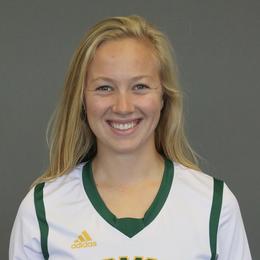On a bright and crisp December morning I trekked out solo to find a hiding spot. Through the fresh snow, into the garden, and further on to the Arboretum Trail. I made sure to go on and off trail as an added challenge for our new master trackers.
The UnSchool at Audubon kids were at the Green Mountain Audubon Center, working on honing winter tracking skills. UnSchool at Audubon is a monthly program offered by Audubon Vermont which allows homeschooled (and un-schooled) students from around Vermont to come visit the Audubon Center and have a day of outdoor-based learning with the added opportunity to do so alongside a peer group that has shared experiences.
That morning, students had arrived with layers upon layers of snow pants, hats, and fleece - only noses and eyes visible. Parents signed students in while they de-layered and checked out the plethora of skulls, bones and bee hives that are the residents of the Education Barn.
Under the guidance of Emily Kaplita (one of Audubon Vermont's Teacher/Naturalists) and myself, students learned the intricacies of print, pattern, and place, putting themselves in the shoes (or rather paws) of Vermont’s winter residents. When tracking, as is the case with many other environment-based activities, it is important to understand the whole picture. One individual track may tell you something, but put it in a larger frame of pattern and place and the three together may tell you a different story.
Along the Arboretum Trail, I trekked on for another 10 minutes. Off trail I found the perfect hiding spot beneath a raspberry bush covered in a thick layer of snow. I positioned myself on my back, my colorful hood facing into the raspberries, and black boots facing outward. I laid there, looking up at red maple saplings above me against the bright blue sky. I radioed in to Emily and our trackers that I was ready for the search to begin. The cold, still air was immediately interrupted by the high-pitched voices and giggles of students excited to put their tracking skills to the test.
For the past two years I have been an educator at the summer camps held at the Green Mountain Audubon Center. During these summer months, sometimes I felt like I was getting paid to be a camper at summer camp. We would spend hours perfecting shelter building by the fire pit, skipping rocks in the Huntington River, and writing letters to the fairies of the Sugarbush. I spent my days with 30+ campers, exploring the many ecosystems the Audubon Center has to offer, all the while learning just as much as I was teaching. I learned the best way to catch a crayfish, how to build a dam that would almost stop the Huntington River and the best rocks to use for river face paint. Not everything I learned from campers was directly about the natural world around us. I was also learning important things being a teacher. Conversations about Star Wars, Minecraft, and other realms that make up the identities of the campers have helped me understand that while teaching can be about information and content, it is just as much about making connections with each student. Each camper that came through our programs those summers helped me to realize that I was put on this earth to be an educator. Walking to the Audubon Clubhouse every day I found myself excited for the chaos of campers to come, full of questions, and ready to get muddy in Beaver Pond and soaked in the Huntington River.
Back in the raspberry bramble, I began to get uncomfortably cold. For at least 20 minutes I laid here, listening as voices moved around me, following the path that my size 8 muck boots left in the fresh snow. Occasionally I let out a howl to lead them on the right path and now I could hear them getting closer. I tried to stay as still as possible beneath my raspberry bramble hideout. Soon, the group of Audubon’s finest explorers were getting closer, successful in tracking by following the trail I had laid. I heard the heavy breathing of a young student trudging through the deep snow and knew I had been discovered. We made eye contact, and I was greeted by cheers of joy -- they had succeeded in their tracking quest.
Making the transition from summer camp staff to an intern has been one that I have held with great value. I had the opportunity to experience the magic of summer camp as well as the office work that comes with winter and spring programs. Working on daily lesson planning, outreach to community partners and coordination within the office, I have come to appreciate the hard work that the education staff does to make summer camp and all programs as successful as they are. I am incredibly grateful for the endless knowledge I have been able to gain from the education staff at Audubon Vermont. Not only have they modeled the work of educators, but as naturalists as well. The hours spent teaching alongside education staff and interacting with the students have given me some of the most valuable experiences of my life. I am forever thankful for the Green Mountain Audubon Center, the parents that send their kids for camps and programs, and for the kids that make the education programs as magical, enriching and successful as they are.




